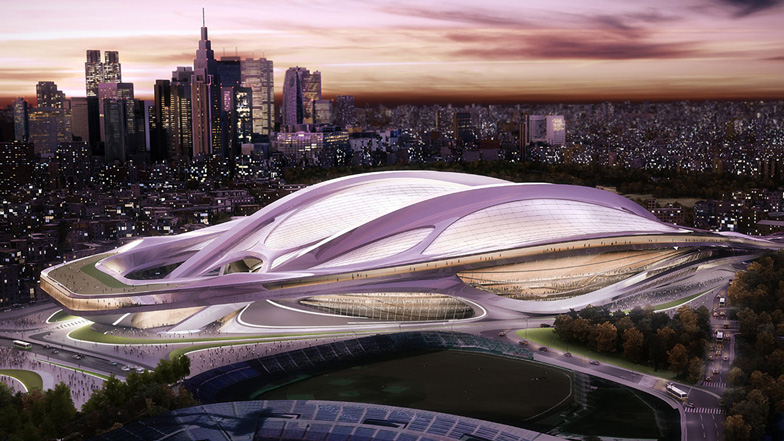A year ago I wrote a post predicting that Istanbul would get saddled with the 2020 Olympics. That was before I had been to Istanbul. That was before Taksim. That was before the Vinegar Revolt. A year ago, the mega-event monolith appeared to be ready to roll on eternally, ever citius, altius, fortius. Now, the IOC is heading to Asia for efficient Games delivery. As our friends at Play the Game pointed out, Tokyo 2020 will be the fifth IOC event in Asia since 2008 (Beijing 2008, Singapore 2010, Nanjing 2014, Pyeongchang 2018 and Tokyo 2020).
There are very simple reasons to explain the way the Olympic vote went. In 2012, Istanbul was well in the lead with Turkey growing at more than 5%, living a closed-condominium, car-dependent, consumerist dream articulated by a right wing government that wanted to use the Games to open up new urban frontiers for real-estate speculation. Sound familiar? Then, the Erdoğan government went too far, trying to eliminate Taksım Square by using ultraviolence to crush popular expression to further the goals of a religiously capitalist autocracy. The repressive measures of Erdoğan’s police forces effectively turned the secular middle class against the Olympic project. These are precisely the people that need to be convinced to gamble their savings on poorly planned “legacy” projects.
The increasingly well-articulated resistance to the Istanbul bid went well beyond Games criticism, highlighting the larger urban-political project underway. The future of Istanbul is up for grabs right now and the awarding of the Games to an authoritarian and repressive regime would have signaled the IOC´s explicit approval of Erdoğan´s government.
A month after Taksim, Brazil exploded during the Confederations Cup, with protesters targeting FIFA and the IOC as parasitic aliens. The delays, enervating bureaucracy, lack of transparency and keystone cops organization of the Brazilians were already major concerns for both of the Swiss hegemons. The presence of millions of agitated people in the streets when the very idea of a mega-event is to banish locals to their houses was a major wake up call. With higher than 25% unemployment in Madrid, what would the Spanish capital have looked like after the Olympic announcement? More practically, with more than 70% of the installations already built, where was the possibility for “urban transformation” that so enchants the European aristocracy on Mount Olympus?
So we were left with Tokyo. The Japanese economy has, by some measures, been stagnant for two decades. However, the Japanese have the world’s highest literary rates, lowest crime, greatest life expectancy and aside from Fukushima, brilliant infrastructure. Does anyone doubt that the Games will be delivered on time? Does anyone question whether or now Olympic spending will significantly alter the course of the Japanese economy? Tokyo is the largest city in the world, will the majority of people even notice the Olympics in their daily lives? No, no and no. Three shakes of the head, one big nod for Tokyo.
The rub is that perceived political, economic and social stability are likely to be major keys to the selection of mega-events in the future. Gerome Valcke has suggested that countries have a plebiscite before being allowed to host, that way when spending goes through the roof and white elephants plop down FIFA can say, “look here, you voted for this.” But clearly, a yes or no vote is not a sufficient criterion for hosting mega-events. “Democracy” would merely function to exclude everyone that voted against it. This is the same way that Erdoğan, Bush, Paes, Cabral, etc. conceive(d) of their democratic mandates. Something longer term, more consensual, more progressive than democracy has to be in place to minimize the damage of these events.
The massive, ongoing protests in Brazil have shown that mega-events may have reached the apogee of their gigantism, arrogance, and general indifference to the lives of the people who subsidize the party and profits of the global elite. The threats of protest in Istanbul and Madrid, in addition to geopolitical and economic considerations, made Tokyo 2020 happen in ways that were nearly unthinkable a year ago. Brazilians can be proud of their role in drawing global attention to the plight of mega-event hosts.














